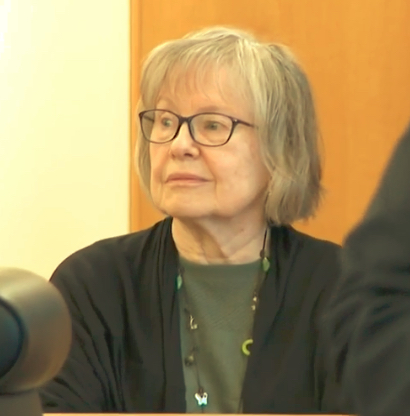By DAMIEN FISHER, InDepthNH.org
BRENTWOOD – State officials knew it had an abuse problem in its juvenile detention system in the early 1990s, before David Meehan says he was brutalized and raped for years by staff at the Sununu Youth Services Center, then called YDC.
Meehan’s civil lawsuit trial against the state ended its third week in Rockingham Superior Court on Friday with testimony from Sandra Brien, the former head of human resources for the Department of Health and Human Services, the agency that oversaw YDC staff.
Brien testified about YDC House Leader Brad Asbury getting fired from his job in 1994 after allegations surfaced he was physically abusive toward the children and used inappropriate and unauthorized solitary confinement.
Asbury is one of the only 11 men charged by the state for alleged abuse at YDC, despite hundreds of more alleged abusers being named by survivors. There are currently about 1,300 adults who claim they were abused as children while held at YDC.
Allegations against Asbury, including his threats of retaliation against staff who reported him, were forwarded to the New Hampshire Attorney General’s Office for investigation in 1994, according to Brien’s testimony.
Asbury wasn’t charged until 2021, after the state created a Task Force to investigate the tidal wave of allegations then surfacing. Asbury is currently facing charges he assisted in the rape of at least one boy.
Asbury didn’t take his firing lying down and appealed to the New Hampshire Personnel Appeals Board. Asbury also used union pressure to fight the termination. Asbury got his job back in 1995 after a PAB hearing.
David Vicinanzo, one of Meehan’s attorneys, asked Brien how many of the YDC staff who Asbury threatened with retaliation testified on his behalf during the PAB hearing, but the state’s defense attorneys objected.
Vicinanzo followed that up by asking more about the other YDC employees who were afraid of Asbury.
“Did the state do anything to relieve their fears of retaliation?” Vicinanzo asked.
“I don’t know,” Brien responded.
Brien claimed poor recollection of the events surrounding Asbury’s firing, and she testified then DHHS Chief Lorrie Lutz was more involved in the details of the firing. But by 1994, when Asbury was fired, retaliation and rape threats were already known to DHHS leaders, according to the prior testimony from Karen LeMoine.
LeMoine testified she left YDC in 1991 after her complaints about staff treatment of the incarcerated children were ignored, and resulted in her being warned there was a plot to have her raped. LeMoine testified that after she reported abusive behavior by other staff, her supervisors and top administrators warned there would be trouble if she continued to be a “rat.”
Soon after that, one of the boys confided in her that some of the staffers had been telling male residents for months that if they behaved and did what they were told, they could have sex with her, LeMoine testified. LeMoine kept pressing, but instead of a hearing about her allegations she was coerced to sign a confidentiality agreement. LeMoine testified she was threatened with jail if she ever told anyone what happened inside YDC, she testified.
“They said that could happen if I was to bring any of these matters outside this agency,” LeMoine said. “They said if you’re in jail, what’s going to happen to your kids.”
Friday’s testimony ended with Dr. Derek Brown, a health economist and associate professor at Washington University in St. Louis Missouri. Brown studies the economic impact child sexual abuse has on adult survivors. According to his calculations, Meehan’s years of rape, beatings, and solitary confinement at YDC cost him between $1.8 and $2.5 million in adult lifetime earnings.
Meehan suffers from Post Traumatic Stress Disorder and is currently collecting Social Security Disability Insurance. According to testimony this week, Meehan will require another $1.5 million to pay for his treatment for the remainder of his life.





